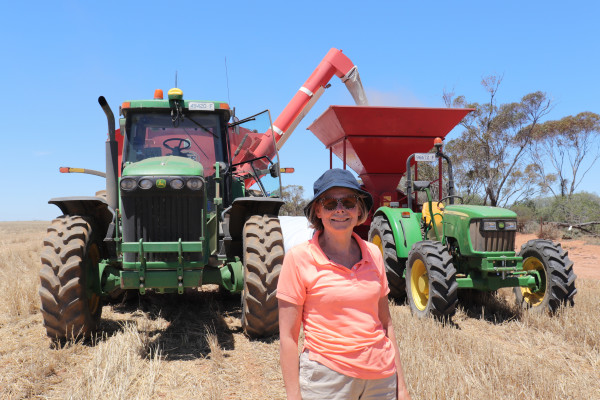DRYLAND farmers say they are being expected to unfairly bear the brunt of rate rises flagged in the Swan Hill Rural City Council draft budget for 2023-24.
While the council has kept the average rate rise to 3.5 per cent, as required by the State Government’s Fair Go Rates System cap, rates for dryland farms will jump 20.8 per cent.
By contrast, the average rate rise for Swan Hill residential rates is 1.7 per cent and industrial rates will increase 1.1 per cent, with commercial and irrigated farmland rates to fall 1.3 and 1.7 per cent.
In a submission, the VFF Manangatang branch has asked for a budget revision and wants the council to “redistribute rate increases more evenly across all classes of ratepayers”.
Christine Plant, who farms at Manangatang and is a VFF grains councillor for the northern Mallee, said it was unfair that such a small proportion of the population was expected to wear so much of the increase.
“In council’s draft budget, it is estimated that the total increase in rates is $1,370,000 and that the dryland farming increase is $880,000,” she said.
“So 64.3 per cent of this increase will be paid by dryland farmers.
“The total number of dryland farming assessments is 1219 and the total number of assessments is 12,231, which means 64 per cent of the increase in rates will be borne by 10 per cent of assessments.”
The council set the differential rate for dryland farming properties at 20 per cent less than the general rate “to help reflect the increased difficulty in accessing the full range of council services that dry land farming properties face, the disproportionate increase in property values over the last several years and the increased risk of seasonal income variations than faced by other properties”.
But Mrs Plant said a large rate increase could affect the profitability of a dryland farming business in a dry year.
“I acknowledge that cost-of-living pressures are making it very difficult for residents, businesses and council,” she said.
“However, farming families are also trying to navigate inflationary pressures and councillors would be well aware of huge increases in farm input costs, in particular fertiliser, fuel and chemicals.”
Mayor Les McPhee said much of the increase could be attributed to the 30.1 per cent increase hike in land values since last year.
“Rates are based on capital-improved value,” he said.
“And unfortunately the dryland farming has had an exorbitant – and we’re aware of that – increase in property values, so we’ve got to take that into account and some places have taken a drop in property values.
“We try and balance it out as best we can across all the different rating areas.”
The cents-in-the-dollar rate was cut 7.2 per cent for all classes of land.
Cr McPhee said the council would consider all submissions and “look at each individual case and take into account their concerns”.
Mrs Plant said people who were interested in supporting the push for a revision should email her at chris@barafon.com.au or text 0428 351 433.
The deadline for submissions on the 118-page draft budget is 4pm next Friday.
















